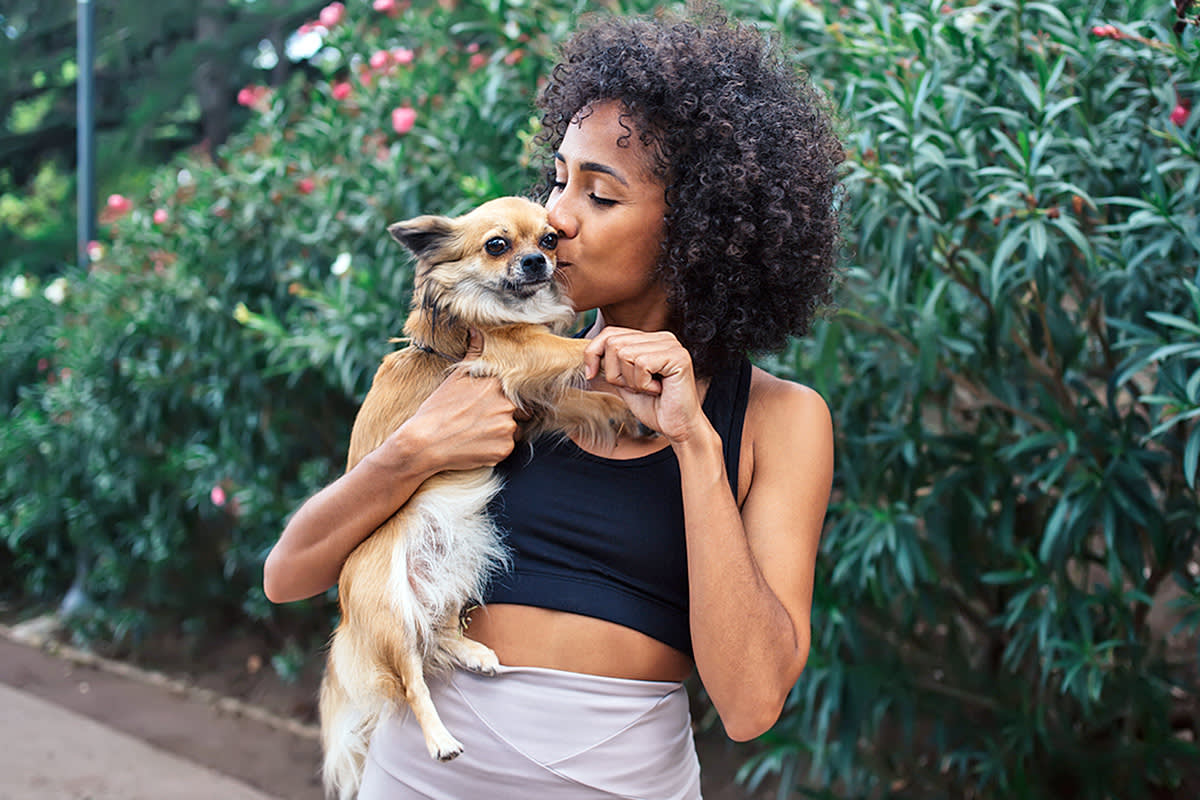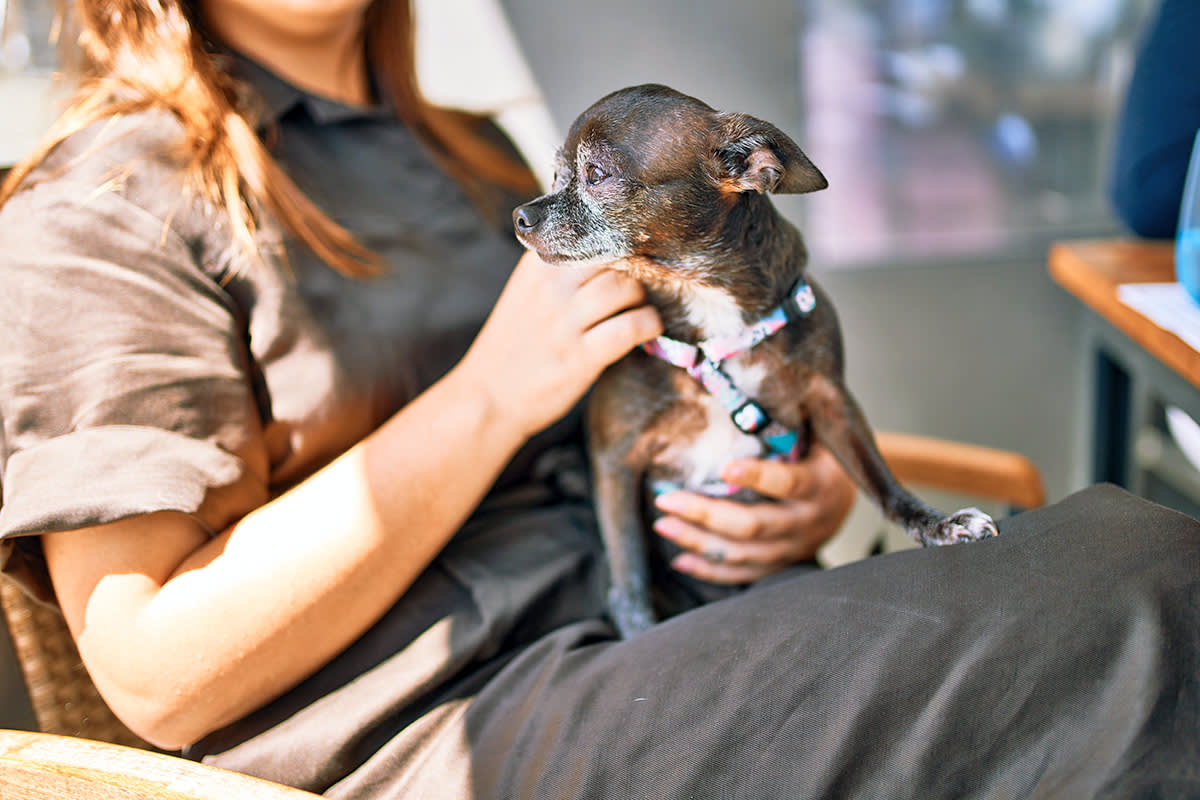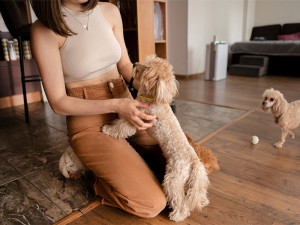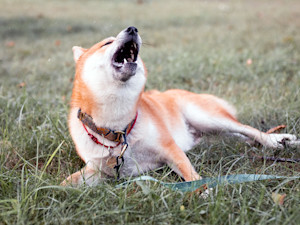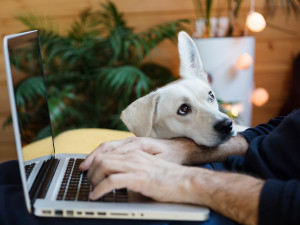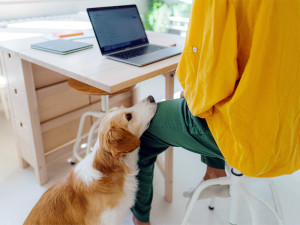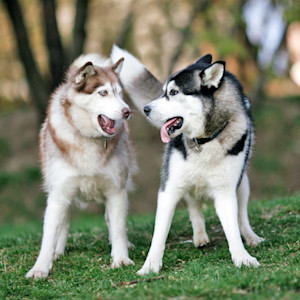
Share Article
You'd have to be living under a rock — or under a rock on a remote Greek island with no internet access (we’re jealous) — to have avoided Get Ready With Meopens in new tab (GRWM) videos all your life. But did you know some pet parents are getting ready with… their Chihuahuas in towopens in new tab?
For example, there’s this Chihuahuaopens in new tab who is very invested in his mom’s morning routine. Or this little apple headopens in new tab who patiently waited for mom’s hair to curl. These pet parents — with their tiny Chis clinging to their body — apply concealer, mascara, and gloss, all while their content little pup chills out (or sometimes peaks out of a handy pouch like some wild marsupial).
For the Chihuahua, it’s not unusual behavior. Typically, these Velcro cuties are hesitant to let you do anything alone. Running to the door? They got there first. Cooking dinner? They’re ready to taste-test. Taking a shower? Who wouldn’t want to watchopens in new tab? At the end of the day, it shouldn’t come as a surprise that you have a five-pound nugget who’s keeping tabs on your every moveopens in new tab.
The question is, why do Chihuahuas love us so much—or, we'll just say it: Why are Chis so clingy?

The science behind clinginess
First off, it’s not your imagination: Your Chi is watching you. Just take this dogopens in new tab who has some serious questions about where his mom has been the past three seconds. Or this “stage-five attention seekeropens in new tab” who is employed as her mom’s bestie.
“Chihuahuas do have a reputation for being quite attached to their humans,” says Erin Askelandopens in new tab, a certified dog trainer and behavior consultant at Camp Bow Wowopens in new tab. “This includes exhibiting behaviors that might be described as ‘clingy,’ such as following their human around the house, wanting to sit on their person or ensure they are touching, and, potentially, vocalizing or showing stress when their human leaves or is out of their reach.”
One theory for why they’re so attached is that it’s simply in their DNA. But isn’t being a bestie in every dog’s DNA, you might ask? Maybe — to a point.
“‘Clingy’ is often another word for ‘affectionate,’ especially for people who are used to dogs that have the need for a job, like herding or livestock guarding,” says Dr. Liz Stelow,opens in new tab a veterinary behaviorist at the UC Davis School of Veterinary Medicine. “Chihuahuas today are purely companion dogs. As such, they prefer to be with people most of the time.”
In other words, dogs have historically been bred for a variety of reasons, from hunting to watching over property. So, while a Rat Terrier might consider it their destiny to chase anything that looks like a rodent (as their ancestors did) or a Bloodhound might adore scent work, the Chi considers it their duty to be your ride-or-die. In other words, just as “working” dogs have a purpose, your Chi’s purpose is… you.
“This selective breeding for companionship likely contributes to their preference to seek close proximity to their owners and keep them within their sights or touch,” Askeland says.
They’re also (obviously) teeny tiny
Not only do Chihuahuas consider it their duty to make sure you’re not alone, but they’re also, well, minuscule compared to the size of most living things.
They might put on a show to pretend they’re larger, but they’re basically slightly plumper than a ladybug. Prey animals (we’re looking at you, hamsters and guinea pigs) are known for hiding because of their small stature. Chis, too, can be nervous about feeling so little, Askeland says.
“Being one of the smallest dog breeds, Chihuahuas can feel vulnerable when faced with new situations, and they may seek comfort and security with their human,” she explains. For that reason, it’s important to help them feel safe. If you’re in a crowd, don’t expect them to walk confidently around people and other dogs who are larger than they are — in that instance, pick them up.
At home, you can place small beds around the house so that they always have somewhere safe to curl up. Small dogs tend to feel safer when they have a spot to call their own. A sense of safety can help build confidence for these little nuggets, but don't underestimate the importance of early separation training too, Askeland says.
What to do when anxiety creeps in
Speaking of separation, separation anxiety is definitely a thing with these clingy kiddos. And while having a little shadow at your side is probably the best thing that ever happened to you, you also might have noticed that this tendency to latch onto your every movement can leave your Chi feeling a little unmoored when you’re not around.
“Anxiety is a common behavioral diagnosis in Chihuahuas,” Dr. Stelow says. “And dogs that are overly attached to people may suffer when left alone.”
Separation anxiety symptoms may include trembling, whining, peeing or pooping inside the house, howling, and scratching or clawing at doors.
“Unfortunately, because they are such a small and portable dog, many Chihuahuas don’t spend much time away from their humans, which means they may not learn how to handle separation when it's necessary,” Askeland adds. It’s best to get your pup “comfortable and content even when alone” early on in your relationship to make them as well-adjusted as possible, she explains.
As this vet notesopens in new tab, you need to make sure your Chihuahua touches grass (literally); carrying them all the time —whether in a bag or in your arms — can cause an already anxious pup to feel even more vulnerable and less confident, potentially leading to aggression.
“The good news is, Chihuahuas are also curious and resilient dogs who love to learn and please their humans, so with consistent, positive training, Chihuahuas can be set up for success and learn to thrive with and without their human’s presence,” Askeland says.
Dr. Stelow agrees: “It doesn’t mean that they can’t be independent if necessary,” she says, referring to the time your Chi can be on their own at home. “But if people are around, their ‘job’ is to be companions to them.”
So, maybe it’s time to think about buying a sling so your Chihuahua can “help” you get ready in the morning? They’d obviously feel terrible if they weren’t there to assist.
And just when it all gets to be too much, just consider: Does anyone else look at you like thisopens in new tab?

Marti Trgovich
Marti Trgovich is a writer specializing in pets and wildlife. She has written about animals for National Geographic, The Washington Post, Newsweek, and other publications, and she spent nearly a decade as an editor at The Dodo. Her favorite animals are guinea pigs, sheep, and small, saucy senior dogs.
Related articles
![Paris Hilton holding her small dog.]()
11 Celebrities Who Are Obsessed With Their Teeny, Tiny Dogs
From Mikey Madison and Demi Moore to Audrey Hepburn, stars have long accessorized with small, cuddly pups.
![A woman sitting on a floor playing with her dogs.]()
How to Know if Your Dog Has Imprinted on You
If they’re following you around like your shadow, there’s a reason for that.
![Shiba Inu screaming outside in the grass.]()
What Is the ‘Shiba Scream,’ and Why Do Shiba Inus Do It?
Loving one of these dogs means investing in some good earplugs.
![Dog Seeking Attention Owner Working On Laptop.]()
Why Is My Dog Being Clingy?
Your dog’s Velcro habits are cute—but not always convenient.
How to Help Your Dog Be Just a Little Less Needy
You love that your dog is your shadow, but maybe not when you’re on a Zoom call.
![Two huskies talking to each other outside in the grass.]()
Why Do Huskies Love to ‘Argue’ With Each Other (and Their Humans)?
Find out what all those “roo-roo-rooos” are really about.
